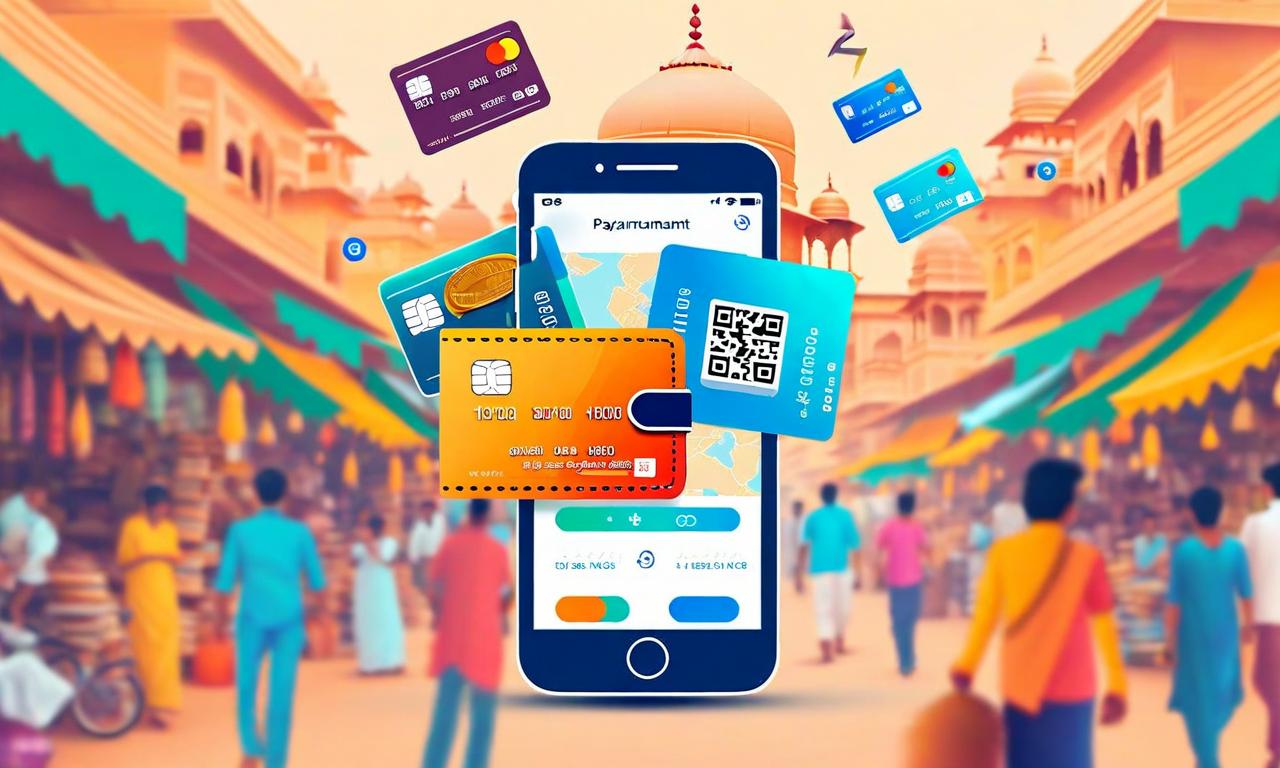Paytm's Unconventional Journey: From $17,000 Stake Sale to Creative QR Campaigns
Venture capitalist Deedy Das revealed insights into Paytm's early days. Founder Vijay Shekhar Sharma once sold 40% stake for $17,000 to repay a loan, which later appreciated to over $100 million. Paytm focused on the Indian market despite contributing to Japan's PayPay. The company used innovative marketing strategies like QR codes on consumer items to gain millions of users. Paytm evolved from One97 Communications in 2000 to a comprehensive financial services platform since its launch in 2010.

*this image is generated using AI for illustrative purposes only.
In a revealing insight into the early days of one of India's leading fintech companies, venture capitalist Deedy Das has shared intriguing stories about Paytm and its founder, Vijay Shekhar Sharma. These anecdotes highlight the unconventional strategies and pivotal decisions that shaped Paytm's growth trajectory.
A Risky Bet That Paid Off
One of the most striking revelations is how Sharma once sold a 40% stake in Paytm for a mere $17,000 to repay a loan. This decision, which might have seemed desperate at the time, turned out to be a pivotal moment in the company's history. The stake later appreciated to an astounding value of over $100 million, underscoring the exponential growth of the digital payments platform.
Focus on Home Turf
Interestingly, Paytm's journey also includes an unexpected contribution to the global fintech landscape. The company inadvertently played a role in the creation of PayPay, which has grown to become one of Japan's largest digital payment systems. However, instead of pursuing international expansion, Paytm chose to concentrate its efforts on the Indian market, a decision that has been instrumental in cementing its position as a leader in India's digital finance ecosystem.
Innovative Marketing Strategies
Paytm's growth story is also marked by creative marketing approaches. In a move that brought millions of users to the platform, the company placed QR codes on everyday consumer items like Coca-Cola bottles and Lay's packets. This innovative strategy allowed customers to scan the codes and redeem Rs 15, effectively introducing a wide audience to the ease and benefits of digital transactions.
From One97 to Paytm
The roots of Paytm trace back to 2000 when Sharma founded One97 Communications. However, it was the launch of Paytm in 2010 that truly set the stage for the company's remarkable journey in India's digital finance sector. Over the years, Paytm has evolved from a simple digital wallet to a comprehensive financial services platform, playing a significant role in India's shift towards a less-cash economy.
These stories, shared by Das, offer a glimpse into the entrepreneurial spirit and innovative thinking that have driven Paytm's success. From making tough financial decisions in its early days to employing out-of-the-box marketing strategies, Paytm's journey reflects the dynamic and often unpredictable nature of startup growth in the rapidly evolving fintech sector.
As Paytm continues to be a major player in India's digital finance ecosystem, these early experiences and decisions serve as a testament to the company's resilience and adaptability in the face of challenges and opportunities alike.
Historical Stock Returns for Fone4 Communications
| 1 Day | 5 Days | 1 Month | 6 Months | 1 Year | 5 Years |
|---|---|---|---|---|---|
| -100.00% | 0.0% | -100.00% | -100.00% | -100.00% | -100.00% |




























